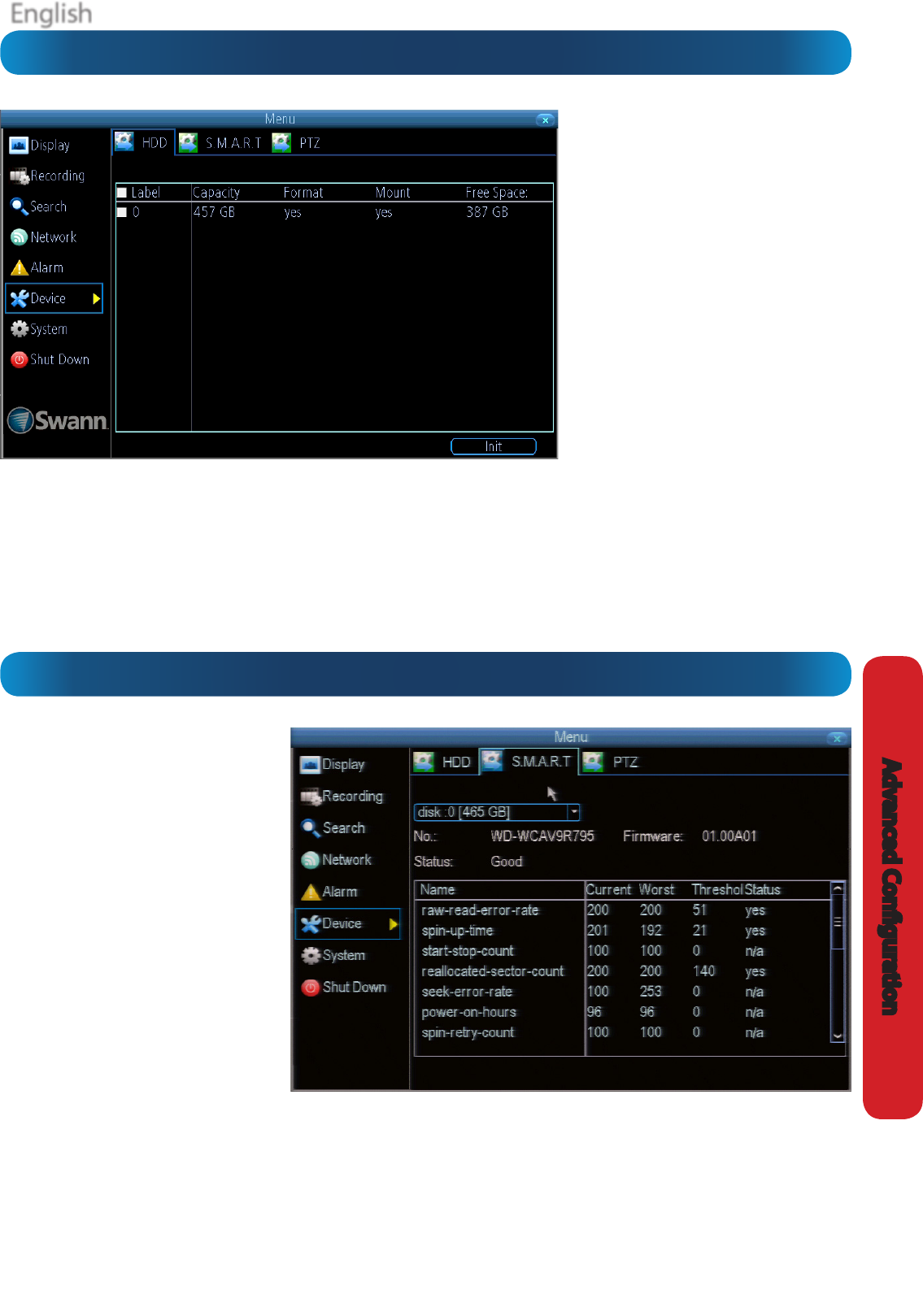
English
47
Advanced Conguration
Typically, there will be one entry here,
and it will be the hard drive that came
with the DVR (if one was included) - you’ll
get many years of usage out of the
included hard drive.
The drive connected to the internal
SATA port will be listed here. A drive
connected via eSATA will appear on this
list, and be useable in the same manner
as an internal HDD.
External drives connected via USB will
not appear on this list, and can’t be
used to record footage - USB lacks the
bandwidth to write multiple streams
simultaneously. External USB drives can
only be used for backing up footage.
S.M.A.R.T. (Self-Monitoring, Analysis
and Reporting Technology - gotta love
a good acronym) is your hard drive’s
way of telling the DVR how it’s going.
Status: The current condition of the
hard drive. It should say “Good”. If it
says anything else, this indicates there’s
a problem with your hard drive.
If there’s no problem, there’s little else
to do here, unless reading the output
of the dozens of self-tests the hard
drive performs on itself is of interest to
you.
If you have been confronted with a HDD
Error, or the Status entry doesn’t read
“Good” then you can use the S.M.A.R.T.
information to attempt to diagnose the
problem. The information presented
in the S.M.A.R.T. report is practically
identical to what you’d see on a
desktop PC while using Administrator
Tools, or a similar service.
Device: HDD
Device: S.M.A.R.T.


















